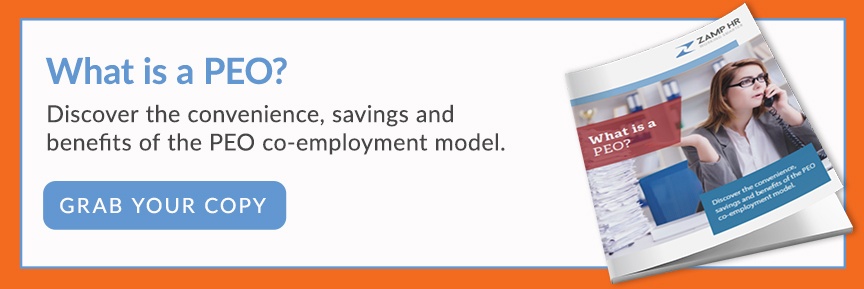
It's easy to end up with multiple HR vendors. You outsource payroll, then realize your team is spending far too much time on benefits administration. So, you outsource healthcare benefits administration. Then, somehow you end up outsourcing administration of your retirement plan to somebody else. You outsource your applicant tracking system to yet another company.
So, why is this a problem?
4 Reasons to Consolidate HR Vendors
There are four reasons why you should consider consolidating your HR to one, comprehensive vendor.
Less Administrative Burden
Some vendors bill monthly. Others bill annually. They may have different ways they prefer to be paid. Suddenly, you're dealing with all of these invoices and trying to keep track of everything.
That makes it counterproductive as you're actually adding work for HR and also for accounting keeping track of all of these payments to multiple vendors. The ROI you are getting from HR outsourcing goes down as less time is saved.
You won't be spending as much time managing the relationship with your vendors; no more negotiating with several vendors every year or so when contracts come up. It can take a surprising amount of time just to keep your vendors happy.
More Comprehensive Support
Does your HR team all know who to call about different matters? Do your employees? Do you have employees constantly calling HR to find out which vendor can answer their questions?
Even worse, your problem might involve multiple areas, and then you have to call multiple people. Before you know it, you've spent half of your day listening to hold music and achieved very little.
With a single vendor, you have a single point of contact who can answer all of your HR questions and can get back to you if they don't have an immediate answer. This significantly saves time and allows you to spend more time working on employee engagement or developing a training program.
Furthermore, as your vendor knows everything that is going on with your company's HR, they can give better answers and provide overall better support. They will also be able to provide you with technical support for HR technology and help you plan for next year's budget.
Reduce Costs
Face it, we're all in business to make a profit. That includes your HR vendors. In most cases, if you do the math, you will discover that a single, consolidated vendor will charge you less than all of your separate vendors combined.
Because they are doing everything, their costs are lower, and they can hire exactly the right number of people. They also save money by using integrated HR technology. Basically, you will always get more for less with a consolidated HR solution. Unfortunately, many companies look at the cost and shy away, going for a dedicated payroll processor instead.
Interoperability
Your payroll provider uses one HR software platform. Your benefits administrator uses another one. Suddenly, all of your employees have to be stored in different databases. This increases the risk of error.
You also have to train people on all of these platforms, resulting in more money and time spent on training. With one vendor, you have access to a Human Resources Information System (HRIS) that covers everything from payroll to benefit enrollment. You only have to learn it once, and you don't have to worry about which database a piece of information is in. You can provide better training for your employees, promote consistency, and provide a user experience they will appreciate.
How to Consolidate HR Vendors
So, you've worked out that you need to consolidate HR vendors to improve your business' bottom line and make your HR team's life easier. How do you go about doing it?
Buy Integrated Software
One way to do this is to replace your current vendors with an integrated HRIS suite. This software combines payroll, time and attendance, benefits administration and everything else that can be automated.
Unfortunately, there are a few downsides to this:
- The software is only as good as the people using it. You may have to spend a lot of time and money on training to get the most out of it.
- It's very expensive, and often cost prohibitive for smaller companies.
- The software vendor knows how to fix their code and troubleshoot, but they don't generally have actual HR experience. They're coders. This limits the support you can get.
Partner with an HR Outsourcing Solution
The second and better way is to partner with a comprehensive HR outsourcing solution such as a Professional Employer Organization (PEO). Your outsourcing partner will already have the state-of-the-art HR technology needed to keep everything consolidated and automated, but you won't be paying for the entire suite.
They will be your point of contact for all of your HR questions and needs and will have expertise most vendors don't.
The ultimate solution is a PEO. When you partner with a PEO, you get all of the benefits of HR outsourcing and access to advanced HR technology at no extra cost. Learn more by downloading our free ebook "What is a PEO?"



